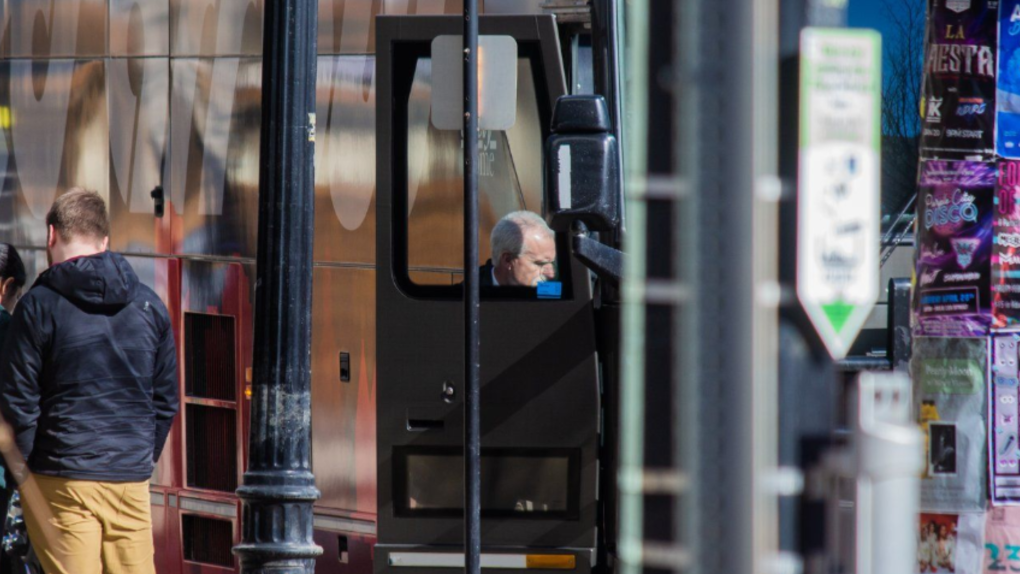UCP ignores busing needs of rural Alberta, opposition critic says

Albertans who live along roads less travelled deserve more passenger routes than providers now offer, says the NDP’s transportation critic.
The need for buses in rural Alberta didn’t die when Greyhound Canada left the West, said Lorne Dach, the member for Edmonton-McClung. Yet community services and privately owned providers struggle to run routes.
“I’m not after subsidies,” Dach told the Local Journalism Initiative in a recent interview. But the government should start “a comprehensive conversation about the type of business model that would survive and is needed in Alberta.”
Dach envisions a mix of large, mid-sized and small buses or vans and on-demand service. Co-operatives and not-for-profits are among possible providers to roll buses through more places, he said.
“And we’re going to need some connection with interprovincial bus networks as well, so we can resurrect the ability to go across the country: to be ticketed from High Level, Alberta, to Thunder Bay, Ontario.”
Devin Dreeshen, transportation and economic corridors minister, confirmed that rural buses don’t loom large on his party’s spending horizon. The UCP member for Innisfail-Sylvan Lake said rural Albertans, including those living in First Nations, want better and new roads and bridges more than they want buses.
Rural Albertans are “pretty independent and you’re driving wherever you need to go,” Dreeshen said in an interview. “So I think (private) vehicles make a lot of sense.”
The province has about 64,000 lane-kilometres of roads and about 5,000 bridges. Dreeshen says he wants to help ensure that network does the job Albertans expect of it.
He pointed to O’Chiese Frist Nation, northwest of Rocky Mountain House, as a rural Indigenous community with transportation needs yet to be met. The nation seeks about $24 million for an area road.
The province and Clearwater County have partnered to provide $8 million each, but the federal government has yet to commit.
Roads improve safety in communities by giving multiple exits in emergencies like fires or floods. “That’s something that we hear is a big priority,” said Dreeshen.
But Dach said the minister is misreading the rural public. The NDP critic hears that rural Albertans want reliable, regular bus service for things like health-care appointments.
Dach calls transportation a “human right,” one especially important for people who don’t drive and don’t have easy access to family or friends who do. The options now are “to fend for yourself” as an individual or community, he said.
“You have to find your own solutions, and they (bus services) will pop up for a while and fail,” Dach said.
A service group might use volunteers to drive seniors to and from appointments to a larger centre. But onerous costs like insurance often send them into the ditch, he said.
Dach held an online video consultation about a year ago with about 100 leaders from First Nations and other rural communities. Their message was that bus service continues to be needed, he said.
Greyhound ceased operating in the West in 2018 and shut down Canadian service completely in 2021.
The NDP government of the day partnered with businesses and other groups to pilot rural busing services.
Published reports in 2018 tagged the cost at about $2.8 million, supporting services in and around Edmonton, Camrose, Lethbridge, Medicine Hat, Red Deer, Innisfail, Penhold, Grande Prairie, Spirit River and other communities.
Dach said companies like Cold Shot and SunDog Tour Co. were hit hard by the COVID-19 pandemic. Ridership went down, route numbers shrunk and rural economies haven’t bounced back.
Mostly aimed at tourism and skiing, Jasper-based SunDog these days offers tours, private deals, airport and other shuttles, vacation packages and a winter-only Jasper-Edmonton express. Its year-round shuttle connects Jasper, Hinton, Edson and Edmonton.
Cold Shot, meanwhile, lists on its website nine routes anchored in Edmonton, Calgary and Grande Prairie. Stops like Valleyview, Fox Creek, Fort McMurray, Red Deer, and Dawson Creek and Fort St. John in B.C. are on its schedule.
The biggest player is Pacific Western Transportation. Based in Calgary, the company of about 5,000 employees includes brands familiar to Albertans – Diversified, Red Arrow and EBus.
Red Arrow links Fort McMurray, Edmonton, Calgary and Lethbridge, and also offers a Calgary airport shuttle. Minus Lethbridge, Ebus runs between the same cities.
Dreeshen says the marketplace decides where buses go. “If people have service concerns or questions, they should obviously talk to those bus companies.”
That’s not good enough for Dach, who compares a lack of support for rural service to what the province spends on community-to-community service in big cities. The study he wants, at least, should receive provincial funding, he said.
“Rural Alberta deserves to be treated with the same type of respect as urban residents,” said Dach.
View original article here Source









